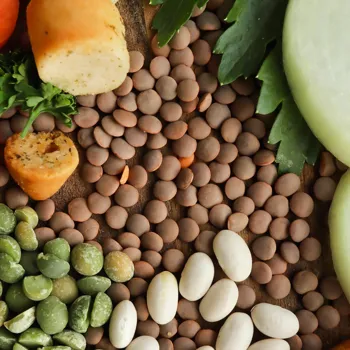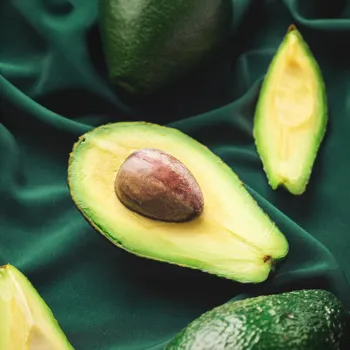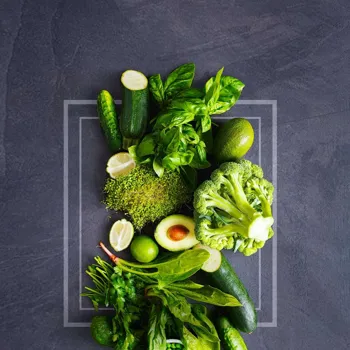Unveiling the Power of Balanced Diet: Discover 7 Vital Components for a Healthier You! Dive in to enhance your well-being!
In the hustle-bustle of modern Indian life, grabbing a quick bite often takes precedence
over nutritional considerations. From samosas at the roadside to instant noodles at home, convenience often trumps health.
However, a balanced diet is not just a ‘nice-to-have’; it is the bedrock of well-being, impacting everything from our energy levels to our long-term health. Understanding the essentials of a balanced diet is crucial for every Indian household, ensuring families are nourished from the inside out.
Let's explore 7 key components that form the foundation of healthy eating.
Carbohydrates: choose complex over refined for sustained energy
The first pillar is carbohydrates. Often demonised, carbs are our body's primary energy source. Opt for complex carbohydrates like whole grains (wheat, rice, millets), fruits, and vegetables. These release energy slowly, keeping you feeling full and focused for longer.
Avoid refined carbs such as white bread, sugary drinks, and processed snacks, which cause rapid blood sugar spikes followed by energy crashes.
Think of it this way: whole grains are like a slow-burning fire, providing sustained warmth, while refined carbs are like a fleeting spark, offering only momentary heat.
Proteins are essential for body functions; include diverse sources daily
Next, we have proteins. These are the building blocks of our body, essential for tissue repair, muscle growth, and enzyme production. Good sources of protein include lentils (dal), chickpeas (chana), kidney beans (rajma), tofu, and dairy products (milk, yoghurt, paneer).

Incorporate a variety of protein sources in your daily meals to ensure you get all the essential amino acids your body needs. Remember, protein isn't just for bodybuilders; it's crucial for everyone, from growing children to active adults.
Including a portion of dal with every meal is a great way to increase you protein intake.
Choose healthy unsaturated fats for brain health and nutrient absorption, limit saturated fats
Fats often receive a bad reputation, but healthy fats are vital for brain function, hormone production, and absorption of fat-soluble vitamins. Choose unsaturated fats found in foods like avocados, nuts, seeds, and vegetable oils (such as olive oil, sunflower oil, and groundnut oil).

Limit your intake of saturated fats found in ghee and butter, and avoid trans fats found in processed foods. Remember, fat isn't the enemy; it's all about choosing the right types and consuming them in moderation. Using a variety of oils for cooking provides different nutrients.
Vitamins from colorful fruits and veggies support health
Vitamins are essential for various bodily functions, from boosting immunity to supporting cell growth. A colourful plate is often a good indicator of vitamin diversity. Incorporate a wide range of fruits and vegetables in your diet, such as spinach, carrots, mangoes, and oranges.

Each colour represents different vitamins and minerals, ensuring you get a broad spectrum of nutrients. Remember, cooking methods can affect vitamin content, so opt for steaming, stir-frying, or roasting to preserve nutrients.
Importance of minerals for health, sources & benefits, easy tips for intake
Minerals, like calcium, iron, and potassium, are crucial for bone health, oxygen transport, and nerve function. Include dairy products (milk, yoghurt, paneer) for calcium, leafy green vegetables and iron-rich foods like dates and pomegranate.
Bananas and coconut water are excellent sources of potassium. For Indian families, adding curd to your roti or adding dates to your bowl a cereal can increase your intake of minerals. Ensuring that you have these minerals is easy and the health benefits are unmatched.
Stay hydrated with water, fruits, and drinks for health
Finally, don't forget water. Staying hydrated is crucial for everything from digestion to temperature regulation. Aim to drink at least 8 glasses of water per day, and increase your intake during hot weather or physical activity.
Include hydrating foods like cucumbers, watermelon, and buttermilk in your diet. Remember, thirst is often mistaken for hunger, so reach for a glass of water before grabbing a snack. Also, make use of drinks like coconut water, lemon water and buttermilk when you need a change.
Embrace balanced eating for a healthier life journey
Adopting a balanced diet is an ongoing journey, not a destination. Start by making small changes to your eating habits, such as swapping white rice for brown rice or adding a serving of vegetables to every meal.
Consult a dietician or nutritionist for personalised guidance to create a diet plan that suits your individual needs and preferences. Remember, investing in your health is the best investment you can make.
So, embrace the principles of balanced eating and embark on a path towards a healthier and happier life.
AI Generated Content. Glance/InMobi shall have no liability for the content













